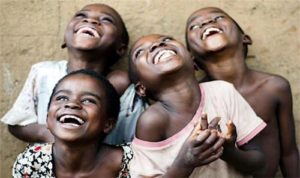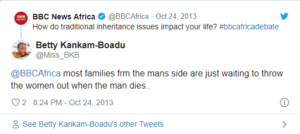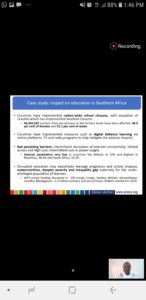The COVID-19 pandemic has spared neither continent nor age group but its impacts vary because of differences in sociocultural and economic situations.

In Africa, children seem to be most vulnerable as they suffer the ripple and long term effects of the pandemic, especially with the relatively weak judicial system which many consider as “a copy and paste” from the western culture.
Definition of a Child
Article 2 of the African Charter on the Rights and Welfare of the Child – 1990 refers to a child as “every human being below the age of 18 years….”
In Africa however, a child remains a child as long as the parents are alive.
The child might get to form a family but he is continuously mentored by parents regardless of age.
Accordingly, he is morally obliged to take no major decision in life without the “blessing” (consent) of parents that usually includes uncles and aunts.
COVID-19 Renders the African Child Helpless within the Judicial System
Due to COVID-19, the African Child is plunged into battles which need legal backing.
Such backing in some cases exists just on paper meanwhile others are inexistent.
In worst scenarios, the child, due to the family nucleus and hierarchy is forced to stay quiet and not seek justice.
COVID-19 and Family Tussles
Of the close to 300 Cameroonians that have succumbed to the pandemic, many are parents.
The child orphaned by COVID-19 is not only expected to deal with his loss but is sometimes confronted with yet another battle: that of safeguarding property.
The story of young Lily is a clear narrative of the bondage of COVID-19 on orphans.
Her father was snatched away by the pandemic and the relatives (the omnipresent parents) want to take over the dead’s man property.

Legal battles between children and “parents” is not new within the African context.
The law in Cameroon for example, does not outrightly protect children’s inheritance since inheritance varies according to culture.
This leaves the COVID-19-orphaned child helpless without any justice route.
School Lockdown equals Increase in Street Hawkers
In March 2020, the Government of Cameroon amongst others measures, ordered the closure of schools so as stem the spread of the virus.
Some parents however saw it as an opportunity to send their children to the streets to hawk items.
Most of these children are forced to sell under very harsh conditions, depicting forced labour.
Section 292 of the Cameroon Penal Code punishes forced labour, true but how many children are able to stand up and demand justice? Few!
School Lockdown and Forced / Early Marriage
Some parents who reluctantly sent their children to school now have the right opportunity to implement a “Plan B” for them – forced/early marriage.
Within these families, the girl child in her teens who cannot go to school due to the lockdown is prematurely sent off for marriage as an alternative.
Section 356 of the Cameroon Penal Code provides penalties for imposing marriage on a child but how effective is the implementation?
Distance Learning, Costly Means to an End
Distance learning with the aid of the internet was introduced in some African countries to enable children continue schoolwork.
According to empirical observation however, only students and pupils with educated parents and those living in big cities availed themselves of the opportunity.
Representatives from AU, UNECA and UNICEF Generation Unlimited discussed lengthily on this in a recent webinar organised on 9th June 2020.

Section 355 of the Penal Code punishes interference to the right of education. In this case, it is complex to get a culprit since the parents’ or guardians’ inability to pay for good network and the Government’s failure to ensure good internet connection in rural areas are both at fault.
Economic Crisis hits Harder on the African Child
A number of businesses have witnessed a general slow down resulting to limited resources and lesser food on the table.
Worse still, internally displaced children and refugees have experienced a bad to worse situation.
Thankfully UNICEF and other local partners have left an undeniable mark on the field.
Where UNICEF and other well-wishers cannot reach, we remember that the UN Convention on the Rights of the Child include the right to food, shelter and clothing.
How can these children clamour for this?
Bondage of Jailed Children in the Phase of the COVID-19 Pandemic
In Cameroon, the Yaounde Central Prison in Kondengui has dozens of children detained for a number of offences.
Kondengui is just one of the many prisons with children as young as 13 years.
In the advent of the COVID-19 outbreak, no visitors are allowed into prisons.
How does the child prisoner thrive without family’s direct assistance?
Time to rethink the implementation of laws protecting children who have lost their freedom.
The above arguments bring to the spotlight the vulnerability of African children during the present COVID-19 outbreak, amid a not-so-friendly justice system in the continent.
Eleanor Ayuketah Ngochi




